Noah Benjamin Miller Of POPPED, On The Five Things You Need To Create A Highly Successful Career In TV & Film
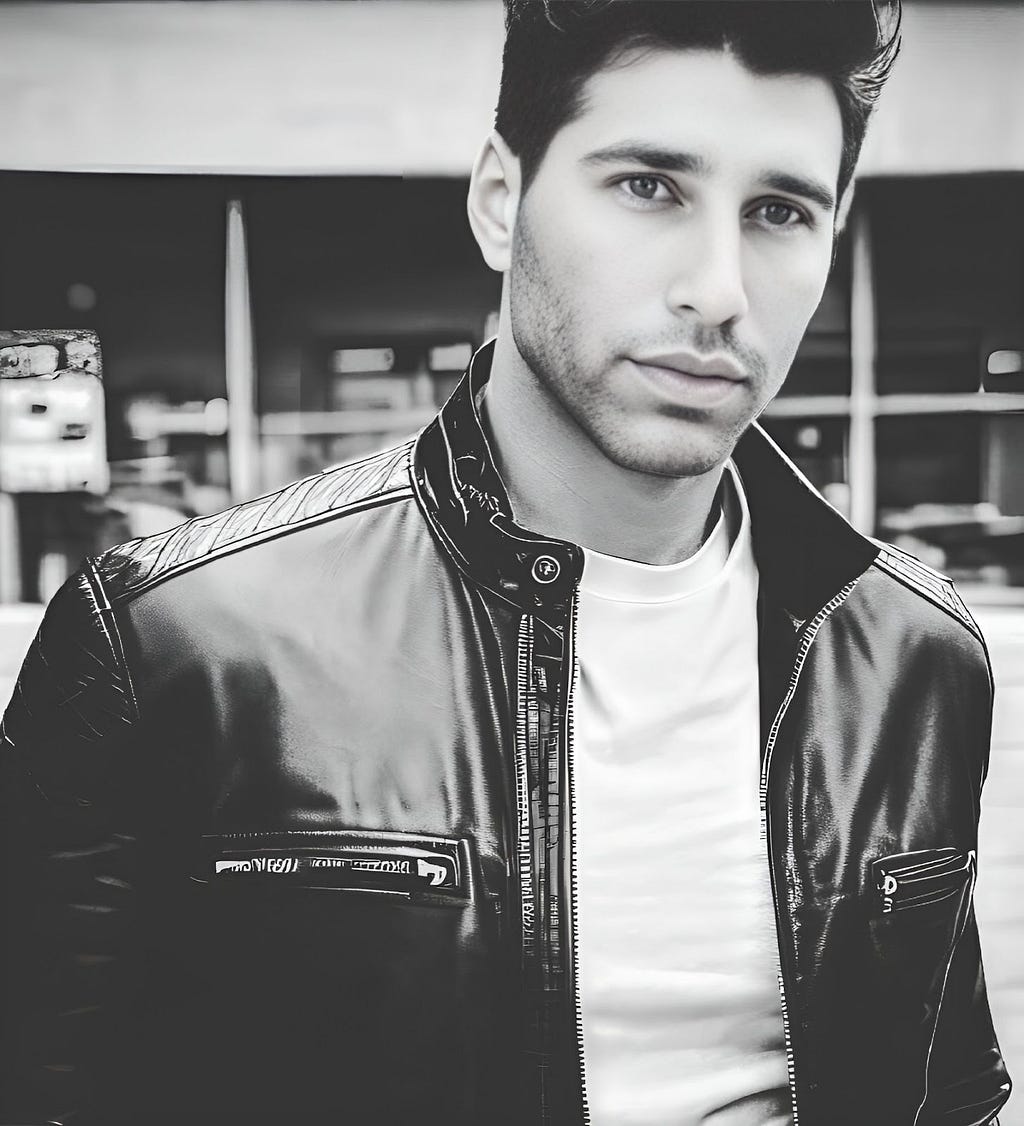
…I wish that every human got to go to the rooms of a 12-step program, not necessarily for Alcoholics Anonymous, but a 12-step program just for living. A space that’s non-denominational, where you’re part of a community, learning how to connect to your version of a higher power. You’d prioritize looking over your vices, your participation in life, and the lenses you’ve put on your eyes that make you see the world negatively, so you can remove them. Also, consider the ways you’ve influenced others to see things negatively, and do the work to make amends and rectify that, staying constantly connected to how you show up in the world, your intentions, your spirit, and your connection to others. Being part of a community would dissolve the issue of people in their 30s only having friends in their spouse and next-door neighbor, because you’d be doing the work to connect with others…
I had the pleasure of talking to Noah Benjamin Miller. Noah, an Atlanta-born actor, writer, and director, has emerged as a promising talent in the entertainment industry. His multifaceted career spans acting, music, and filmmaking, showcasing a blend of creativity and determination. Miller’s latest project, an original TV series titled “POPPED,” is set to premiere at the prestigious Dances With Films festival on June 22nd, 2024, at the Chinese Theaters in Hollywood.
Miller’s passion for performing arts was evident from a young age. Growing up in Atlanta, he was actively involved in various regional performances, often missing school to pursue his passion. Despite his early involvement in musical theater, Miller found the stories unconvincing and shifted his focus to straight theater, which allowed him to explore complex characters and issues.
He pursued a Bachelor of Fine Arts in Acting from NYU’s Tisch School of the Arts, where he delved deeply into character studies, influenced by his concurrent studies in psychology. Although he didn’t complete his psychology major, the knowledge he gained has significantly influenced his approach to character development.
After graduating from NYU, Miller moved to Los Angeles, where he studied at The Groundlings, a renowned comedy school that has produced many SNL alumni. Despite his dedication, he faced significant challenges in the auditioning world, often feeling frustrated by the roles available. This period was marked by personal struggles, including depression and difficulty fitting into the LA scene.
His breakthrough came when he was cast in NBC’s “Game of Silence,” which filmed in Atlanta. This role brought him back to his hometown, where he felt a renewed sense of stability. Following this, Miller enrolled in the Savannah College of Art and Design (SCAD) to pursue a Master’s in Film and TV, a move that would further hone his filmmaking skills.
The idea for “POPPED” came about somewhat serendipitously during a pitch meeting for a web series project at SCAD. Under pressure to present multiple ideas, Miller spontaneously pitched the concept of a washed-up ex-boyband member who becomes entangled with a drug cartel, using his music career as a front for laundering money. This spontaneous pitch has evolved into a full-fledged TV series.
“POPPED” has been described as a fusion of “Schitt’s Creek” and “Ozark,” with its protagonist, Mason Grate, navigating a second chance at fame under dubious circumstances. The character of Mason is deeply flawed, struggling with addiction and self-identity, themes that resonate with Miller’s own experiences and interests.
Miller’s work extends beyond acting and directing. He is also a musician, performing under the name NOAHBOY, with his music streaming on various platforms. His previous works, such as “FLOOD MY BASEMENT,” “LAPSE,” and “But Momma I Love Him!” have received international acclaim, further establishing his reputation as a versatile and innovative creator.
In addition to his artistic pursuits, Miller works as an addiction recovery coach in Atlanta. His personal experiences with mental health and addiction heavily influence his storytelling, with many of his characters grappling with these issues. He believes in the power of connecting the hero’s journey to real-life struggles, aiming to inspire and resonate with audiences on a profound level.
In interviews, Miller has spoken candidly about his journey, from the highs of early career successes to the lows of personal struggles. His move back to Atlanta during the pandemic allowed him to reevaluate his goals and focus on what truly mattered to him. This period of introspection led to the creation of “POPPED” and a renewed commitment to his craft.
Miller’s work is characterized by a deep empathy for his characters, often reflecting his own battles and triumphs. He sees his role as a storyteller to highlight the complexities of the human condition, particularly through the lens of addiction and recovery.
With “POPPED” poised to make a significant impact at the Dances With Films festival, Miller’s future looks bright. He has already storyboarded 13 episodes of the series and is ready to begin shooting, demonstrating his commitment to bringing this project to fruition. His ability to juggle multiple roles — actor, director, writer, musician, and recovery coach — speaks to his dedication and passion for his work.
Noah Benjamin Miller continues to push boundaries, creating content that challenges and entertains. His journey from a young performer in Atlanta to a rising star in the entertainment industry is a testament to his resilience and unwavering dedication to his craft. As he prepares for the premiere of “POPPED,” audiences can look forward to experiencing a unique and compelling narrative that reflects Miller’s unique voice and vision.
Noah, it’s an honor to meet you. Before we dive in deep, our readers would love to learn about your personal origin story. Can you share the story of your childhood and how you grew up?
Noah: Okay, sure. Yeah, I grew up in Atlanta, Georgia, just doing a lot of performing. I got to miss quite a bit of school to go perform for numerous things, but it was all pretty regional. I knew that performing was what I wanted to do. The interesting thing is that when you’re a kid growing up in the performing world, there’s a lot of musical theater in schools. So I thought that’s what I had to be good at, but I never liked the stories. I always found them really fake.
I went to NYU for acting, moved to New York, and specifically avoided musical theater. I wanted to do very specific straight theater because I really liked delving into complex characters with a lot of issues. At the time, I was actually double majoring in psychology, though I didn’t end up finishing. I wanted to know more about people with mental health issues because I found those to be characters I really liked. The more I studied, I realized that almost everyone has their own mental health issues.
I did a bit of film acting in college and then really struggled afterward to find my footing in the auditioning world. Agents tell you to audition for anything and everything, and I hated it. You spend all this money and time auditioning for roles like “waiter number four.” So, I moved to L.A., auditioned for everything again, but studied at the Groundlings, a comedy school where all my heroes had studied — everyone from SNL.
I found myself getting really depressed, struggling, partying too hard, and trying to fit in with the L.A. crowd without finding my footing in anything. Right when I was about to reach my breaking point, I landed my first TV gig. It was funny because I got pulled into Sony Pictures, and they said they had a show they thought I’d be good for, but it was shooting in Atlanta. They asked if I had anywhere to stay there, and I felt like I was having a fever dream because, yes, my parents lived there, where I grew up.
I filmed the show in Atlanta, and driving around afterward, I just felt more sane outside of Los Angeles. So, I stayed, auditioned here for a bit, and then the pandemic hit. Everything shut down, and I reevaluated what I was doing. I was in the middle of a master’s in addiction therapy, trying to do that, acting, and writing. I hit a breaking point, realizing I wasn’t doing what I wanted. I needed to stop asking for permission to do what I wanted. I had to show people what I was good at.
So, I got my master’s in film and started making my own films. That started going really well. Now, I direct in Atlanta, wrote, and produced an entire pilot, and we have an entire show bible describing how the show will go in the future if we get picked up. The funny thing is, while saying all this, I’m sitting in my office where I work as an addiction counselor for a treatment center. I still juggle both roles. Every single thing I write has a through line of drug addiction and depression because those are the characters I like to play. There’s nothing harder to overcome than an addiction and learning how to connect with others and push past yourself to succeed. That’s the through line for all my work, and that’s where I’m at now.
That’s amazing. So, you probably have a fascinating career. You’ve played a lot of interesting roles. Can you share with us one or two of your favorite behind-the-scenes stories from the industry to give us outsiders a sense of what life is like?
Noah: Yeah, sure. I’ll start with one that’s not too happy, but it’s a really interesting story that I think about a lot. I had been auditioning for a film for a very important production, a well-known studio in Los Angeles. I had gotten pretty far in the process for one of the roles. At the time, I’d been using marijuana a lot to cope with my problems, and I had lost my voice, so it sounded deep and raspy. The part was for a late teenager, but I could pass for it.
The producer told me, “You no longer sound like a teenager.” I was so out of it that day that I just said, “Yeah.” He replied, “I don’t think this movie’s for you.” I asked, “Okay, what should I do?” He just shrugged and said, “I don’t know, make a web series.” At the time, it felt like the most devastating thing I had ever heard. But looking back, I think he was trying to say, “Go show people what you can make.” I wish I had understood that then and started making short films. I believe I would have gotten to where I am now a lot faster. But, you know, everything plays out exactly as it should, and I have no regrets. It was an interesting experience to have my heart crushed but also receive that nugget of information that I couldn’t hear at the moment, but now it’s something I do.
As for another story, my very first time being on TV, I played an overprivileged college kid who liked to party too much. My scene involved picking up drugs at a strip club. We were shooting at an actual strip club in Atlanta, under an overpass. It was the scariest strip club in the world, and we were shooting at 2 a.m.
No one can prepare you for your first moment when they yell, “Lights, camera, action.” Suddenly, you realize there are 50 to 100 people working around you, and everyone’s job and time depend on your ability to just go and do it well. It was an incredible rush that I loved. I’m not someone who scares easily — I’m really only afraid of my own mother and cockroaches — but in that moment, walking into the strip club, with everything looking real except for the people staring at you with cameras and lights, it was intense.
There’s no time to settle in; you just have to go. It was exhilarating, but what I took from that is that it’s not just about your ability to perform but your ability to perform under pressure that you’ve never experienced before. I don’t even know how to train someone for that. Maybe bring in 50 strangers to stare at you and tell you to go. It was the most exhilarating and scariest moment, but from that point on, I’ve never been more comfortable. Nothing feels like the first time.
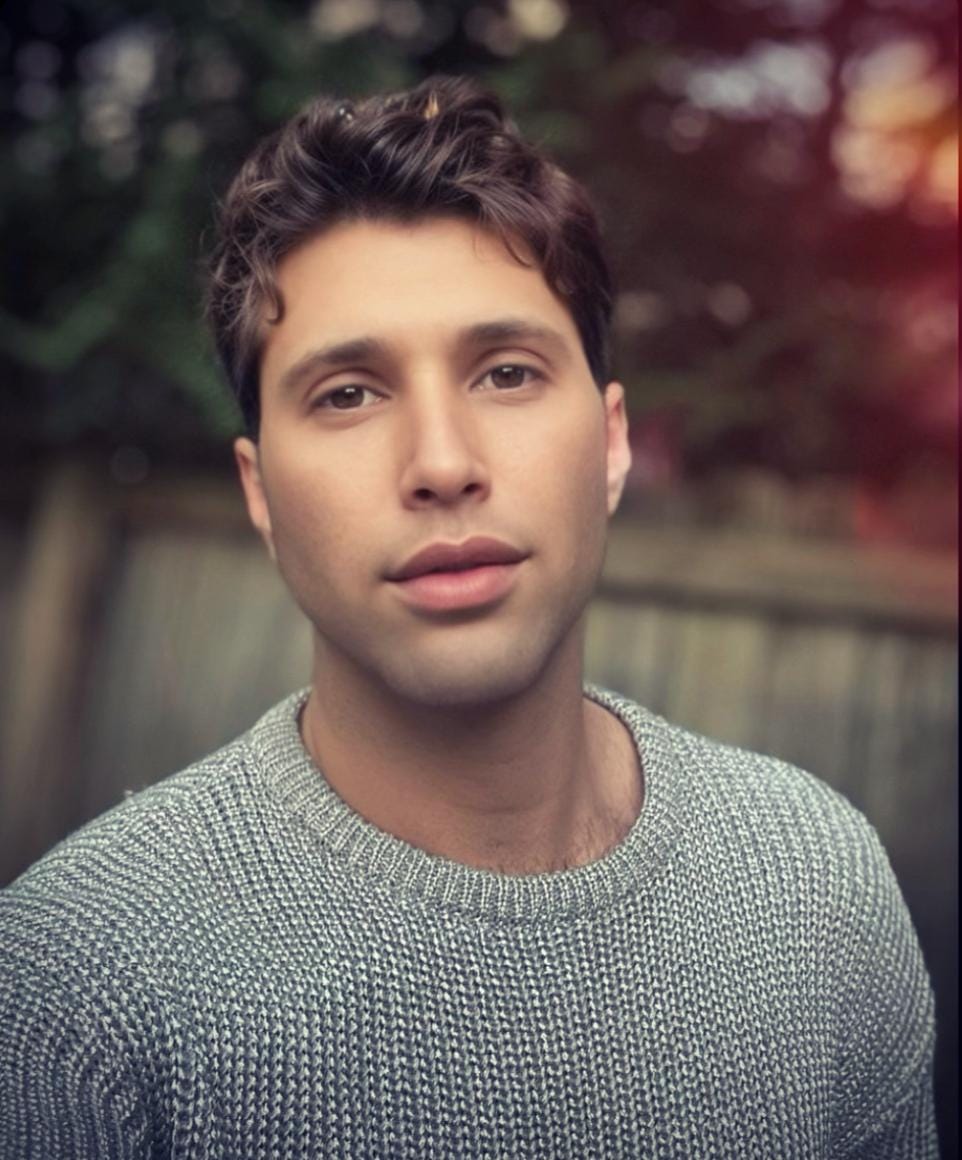
That’s fascinating. It’s like the saying, the first time is the hardest, and it only gets easier from there.
Noah: Exactly. Once you know you can handle a situation like that, it always feels the same to different degrees. You don’t really think about that part. You know your lines, your character, and what you’ll bring to the scene. But you have no idea what it’s like when it’s so technically manufactured, and everyone needs you to be a part of the machine like that.
Beautiful, great story. It’s been said that sometimes our mistakes can be our greatest teachers. Do you have a story about a humorous mistake you made when you were first starting and the lesson you learned from it?
Noah: Oh, well, my first time producing on a larger scale taught me a big lesson. Never just take people’s word that it’s okay to film somewhere without meeting everyone who owns the property. I shot one of the biggest, most expensive days on a friend’s farm. Everyone in the family, who was gifting us this ability to film there, said it was fine, and everything seemed great.
However, midway through filming, we were told that a homeless meth addict was allowed to live on the farm, but he would be fine, and the grandfather had dementia, but he wouldn’t be a problem either. Within 20 minutes of each other, in the middle of the shoot, the meth addict started driving a truck in circles and screaming, and the grandfather, who had completely forgotten that we were there filming, started asking us who we were and trying to kick us off the property.
Everything ended up being fine, but there was a moment when I had a full freak-out. I thought I had been really diligent, but apparently, you should ask everyone who exists on a property and find out before you do anything. We were cleared with paperwork, had ROIs, and the insurance to be there, but I wasn’t prepped for that at all. You really can never be completely in control of a situation when it comes to filming, but that was quite a moment for me.
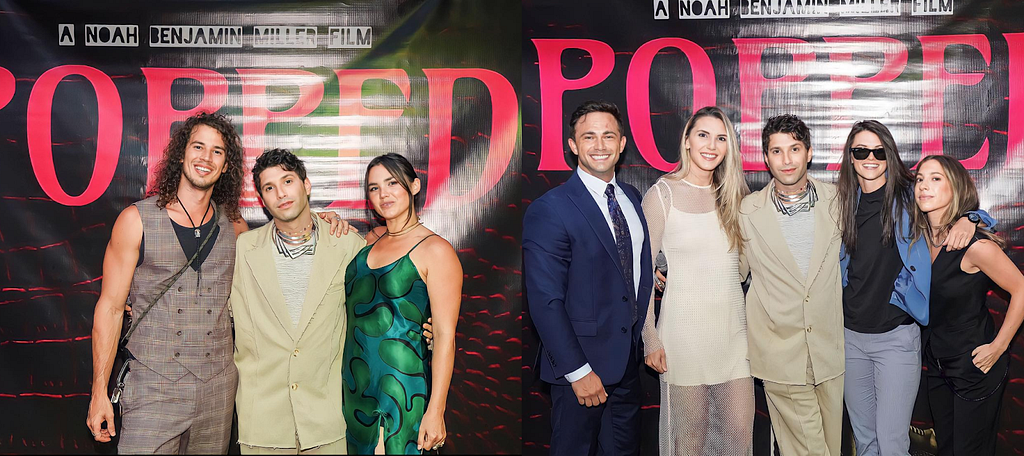
Okay, you have so much exciting work. Please tell us about POPPED. Tell us about what you’re working on, why we have to see it, and why the networks have to pick it up.
Noah: So, POPPED has been described by those who’ve read the script or seen it as if Schitt’s Creek and Ozark had a baby, and that baby had a drug addiction and a personality disorder. POPPED is the story of Mason Grate, an ex-boyband member who, for the past 10 years, has become more famous for his drug addiction and TMZ arrests. The label finally realizes that his entire demographic has aged out of caring about him or paying for him. He hasn’t produced anything worthwhile in so long that they’re like, “Hey, you’re actually more of a liability to us. We’re going to drop you.”
So, he’s forced to move back to his childhood home in Augusta, Georgia, where his sister owns and operates a farm. The family tells him he has to work there because he has lawyer fees and nothing else to do. Begrudgingly, he starts working there only to discover that his sister has allowed a drug cartel to operate on the farm. When he discovers this, they tell him, “We’re not going to kill you, but we are going to make you recreate your music career, through which we’ll funnel and launder cartel money on your world tour.”
He’s having this reinvigoration of his music career, but really it’s just a drug front. Aside from the fun and insanity of it all, I think everyone will love it because we love an anti-hero story. Mason is completely self-obsessed, isolated from becoming a real human because, since he was a small child, all eyes were on him. He’s been given everything he ever wanted, which is part of the reason he has a drug addiction. These constant cries for help and self-destruction come from not having the ability to discover himself. Finding your thing and being talented at a young age gives you no room to fight for your life, so it manifests in crazy ways.
We have this character who hates himself and, through that, is unable to connect with others. Suddenly, he’s given the chance to rediscover himself under incredibly odd circumstances, reconnect with his family under insane circumstances, and be gifted the chance of having the career he’s always wanted. This weird amalgamation forces him to be vulnerable. Yes, it’s funny. Yes, it’s fun. He’s still crazy and never gets too serious, but you see this incredible shift from an asshole of a character to someone you’ll fight for because you watch him overcome not only his drug addiction but also himself.
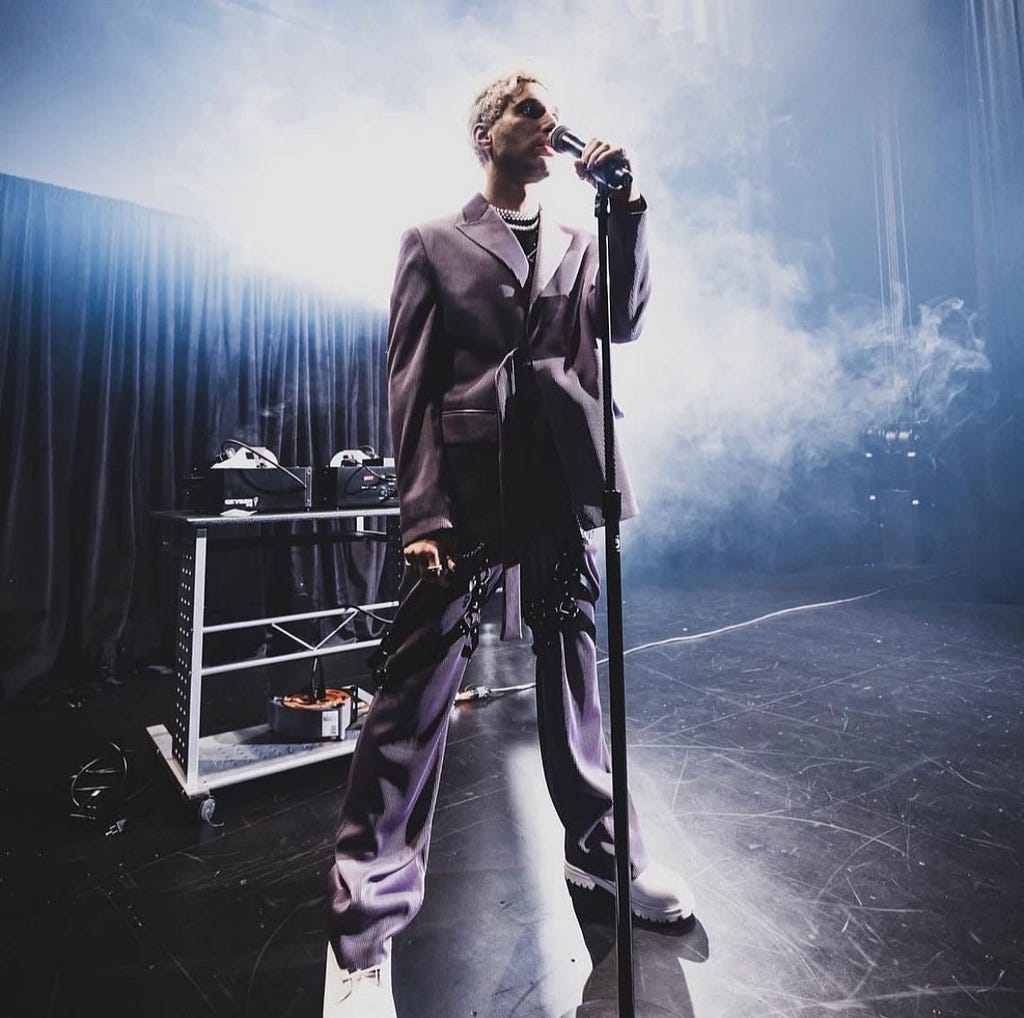
So, do you play Mason Grate?
Noah: I do. I play Mason Grate. I wrote it and directed it. It’s hard to juggle, but here we are.
So, how would you compare and contrast yourself with the character of Mason Grate? How are you similar and how are you different?
Noah: I mean, we’re pretty similar. It’s pretty much myself on steroids. I took some of the most interesting parts of the downfalls of my life and the things that I always wanted and worked for and made them cinematic. It’s funny because POPPED came out of thin air. When I was in my master’s program, I was chosen to be one of the creators. They pick one student a year to be the showrunner for a small web series they create.
Originally, I had pitched one show that I had been working on and hoped to be chosen for. Of course, they did the thing that happens a lot in pitch meetings where they go, “Great, do you have anything else?” They want to hear how prolific you are, what else you’re working on besides just this one thing. Under the pressure of it all, I just said, “I have this idea. It’s called POPPED. It’s about an ex-boyband member who ends up working for the drug cartel and becomes the front.” It just came out of me, and to date, it’s my favorite idea.
There’s a movie with Andy Samberg called Pop Star…
Noah: Yes, so I get told I kind of look like Andy Samberg a lot and both playing pop stars. This has come up before. Noah: I have seen it. It’s a very different premise, obviously, but yes, two Jewish boys playing pop stars — we’re going to get compared. One day he will play my older brother in something. I think that’s inevitable because of our likenesses. So we’ll see.
Okay, so what lesson do you think society can take from the motifs of POPPED?
Noah: Well, you know, I mean, I don’t want this to be the hill I die on, but realizing that we are all human, even celebrities. I know it’s very hard in this climate right now to care about rich and famous people, but I think that it’s not about us caring about them to do them a favor. Caring about them helps us care about ourselves. This toxic thing where we can pick and choose who we can trash is not good for our own well-being.
Cancel culture — this is going to get me canceled — but cancel culture isn’t conducive for ourselves. It gives us the false belief that we have control that doesn’t exist. Our voices can be used for so much, but adding into the hate flavor of the week has proven to do nothing. We gang up on one celebrity, they fall, they have a comeback. Unless they’ve done something truly awful, we have no control over anything. We’re just adding to a really vicious way of thinking about humans in general.
Totally get that people who are super successful and really don’t seem to care about others can be seen as assholes. However, our judging of what other people go through is so gnarly. But also, aside from caring about Mason as a pop star, one of the biggest motifs is that what’s meant for us will always be there for us. There’s no “I messed my life up so bad I can’t redeem myself.” If what I’ve done is redeemable, then I can always get back what’s right for me.
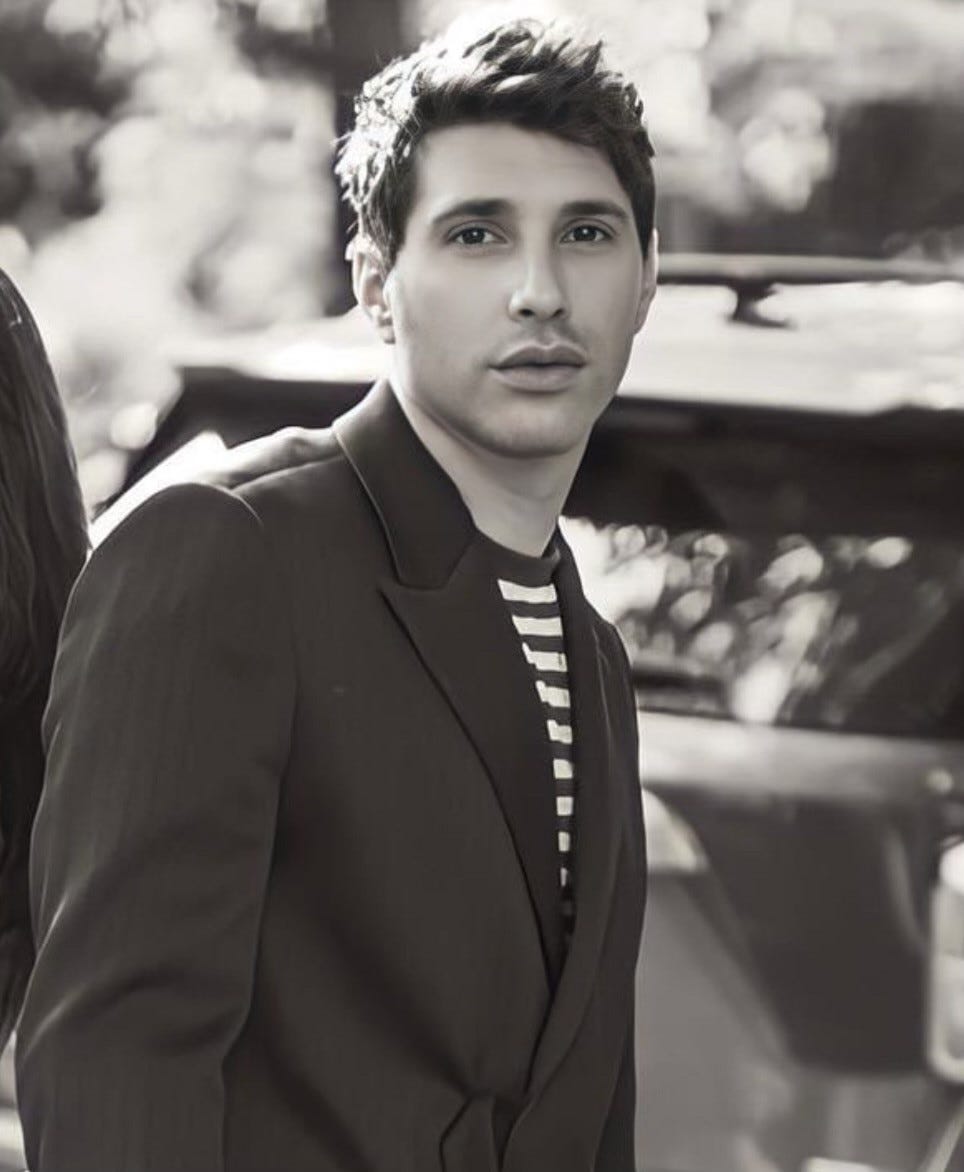
That’s great. You said it so profoundly — the first victims of cancel culture are ourselves. We’re becoming, like you said, having a hatred of the week.
Noah: Someone much smarter than I once said, “Being angry with someone is like drinking poison, expecting someone else to die.” The hatred we have towards celebrities who will never hear anything other than the collective negative noise is not really effective, but we sure are playing a part in the vitriol. Maybe it’s the fact that we’re so obsessed with the underdog that we have to tear someone down just to watch them rise again. But trust and believe, most celebrities are fine because there’s nothing anyone has ever said to them that’s meaner than the things they’ve said to themselves. That’s true for all of us. You can’t tear me down — I already did that and got over it.
You’ve been blessed with a lot of success now. Looking back to when you first started, do you have five things you need to make it in the entertainment industry?
Noah: One, an outlet for my sanity that has nothing to do with monetization or my craft. It needs to be like a hobby that’s far removed.
Two, a tribe of like-minded people in my work world who can help me achieve what I want.
Then, a tribe that has nothing to do with my work, that only enriches my soul.
I think it’s really important for me to find simplicity amidst the storm.
Five, I gotta mention, my fiancé is an amazing human being, but he grew up on 400 acres of Virginia farmland. What I do is so far removed from what he grew up with. I wish I had had him sooner. You know what I mean? If I had had him at the beginning of all of this, my rock in reality would be that when I go home, I can silence it a lot easier. It used to be film all day, work all day, come home, and then do breathwork exercises to try to de-stress. Now, I can look at his face and just talk about food and completely forget that I exist outside of those doors.
Okay, we’re almost done. Can you share with our readers any self-care routines or practices that help your body, mind, and heart to thrive?
Noah: Absolutely. I am a huge proponent of walking in the woods. I think that getting attuned to nature and self, and getting your heart rate up all at the same time, is vitally important.
Every day, I start with a grounding technique. I make sure to stand barefoot in the grass so I can remind myself that I am part of nature.
Three, I’m really bad at meditation, but I really try to clear my head in the morning. I’m a big morning bathtub person. I find that if I can take a bubble bath and just check in, doing something that’s self-care-like, I can calm my mind.
Is that three or four? I don’t even know. We’ll give you two more.
Oh, this is a big one and it kind of grosses people out, but I love it. In the summertime, I will go swimming in the Chattahoochee River by myself. Some people say the water is disgusting, but I say, hey, they test it all the time and say it’s okay. So I’m going to believe them and enjoy it. If I get superpowers or grow an extra limb, we’ll figure that out later. For now, it feels fine.
Lastly, I really make time to have one-on-one conversations with another human being, eye to eye. Just talking about life and connecting with people is the most therapeutic part of my life.
Beautiful. This is our final question, our aspirational question. So, Noah, because of the platform that you’ve built, you’re a person of enormous influence. If you could spread an idea or inspire a movement that would bring the most good to the most people, what would that be?
Noah: I know. I wish that every human got to go to the rooms of a 12-step program, not necessarily for Alcoholics Anonymous, but a 12-step program just for living. A space that’s non-denominational, where you’re part of a community, learning how to connect to your version of a higher power. You’d prioritize looking over your vices, your participation in life, and the lenses you’ve put on your eyes that make you see the world negatively, so you can remove them. Also, consider the ways you’ve influenced others to see things negatively, and do the work to make amends and rectify that, staying constantly connected to how you show up in the world, your intentions, your spirit, and your connection to others.
Being part of a community would dissolve the issue of people in their 30s only having friends in their spouse and next-door neighbor, because you’d be doing the work to connect with others.
It’s really an amazing idea. It’s a profound idea. If only that’s what our churches and synagogues were like, you know?
Noah: I know a million people will read this and say, “That’s what my church is,” and that’s great for them. But many people don’t feel that way because of the stigma of religion. What if we were just going there with the goal of being better people and connecting with others? That would be great.
Beautiful. Well, Noah, it’s been so wonderful to meet you. How can our readers continue to follow your work and support your pilot so it gets spread as far as possible?
Noah: Yeah, the best way is to follow me on Instagram, @noahboy . That’s where you can see updates on any films I’m working on, any music I’ve got coming out, and follow me in real time along the journey.
Amazing. Such an honor to meet you, my friend. I wish you continued success and blessings. Hope we can do this again next year.
Awesome. Thank you so much for having me.
Noah Benjamin Miller Of POPPED, On The Five Things You Need To Create A Highly Successful Career In… was originally published in Authority Magazine on Medium, where people are continuing the conversation by highlighting and responding to this story.